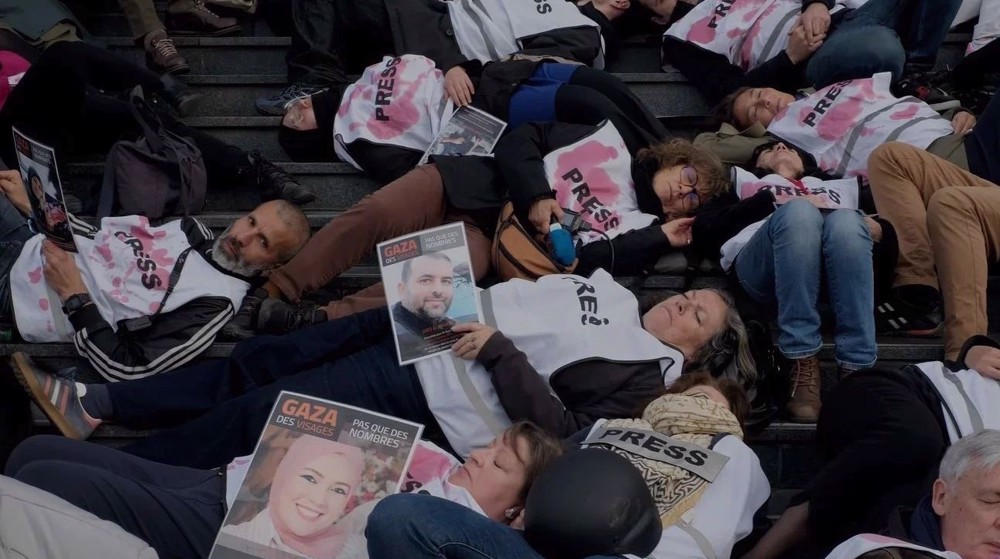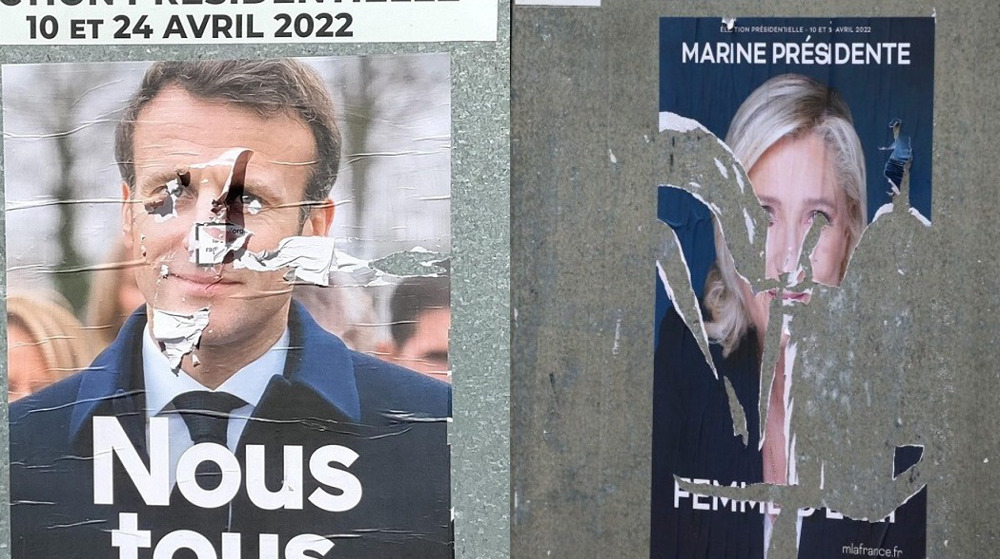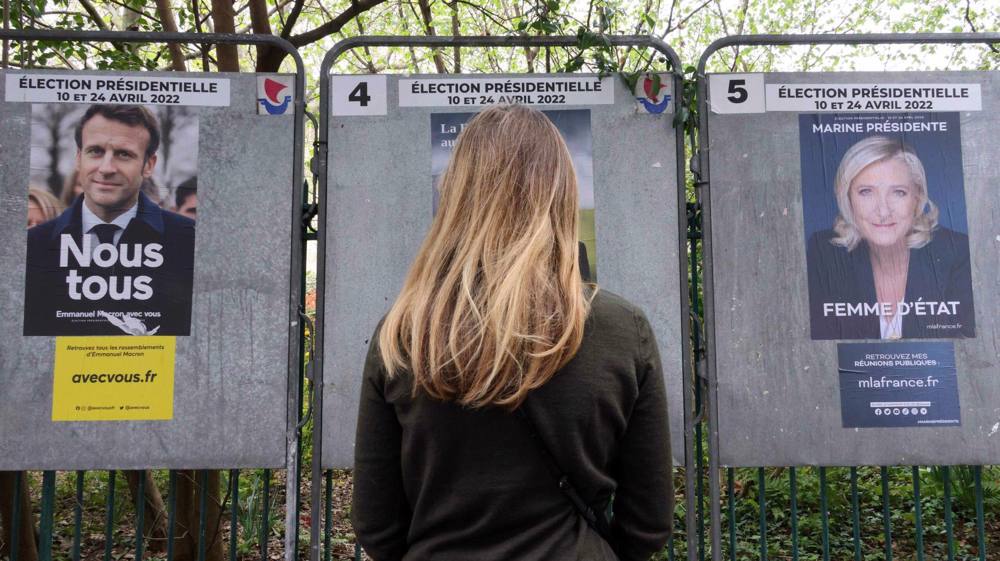French vote in election runoff between two 'evils'
French voters have cast their ballots in a run-off election that will decide whether pro-EU Emmanuel Macron will maintain office for five more years.
Surveys and opinion polls point to Macron as the likely winner of the election against far-right euroskeptic candidate Marine Le Pen, but with a far smaller winning margin than in 2017 when he beat her by taking 66.1 percent of the vote.
The 44-year-old incumbent has warned of "civil war" if Le Pen, whose policies include a ban on wearing Muslim headscarves in public, is elected, calling on French democrats of all stripes to back him against the far-right candidate.
Le Pen has focused her campaign on the rising cost of living in the world's seventh largest economy, which many French say has worsened with the surge in global energy prices. The 53-year-old has also zeroed in on Macron's abrasive leadership style, which she says shows an elitist contempt for ordinary people.
Political analysts believe that Macron will face a difficult second term if he wins, with protests likely over his plan to continue pro-business reforms, including raising the retirement age from 62 to 65.
Le Pen is also expected to make radical changes to the country's domestic and international policies, and street protests could start afterwards.
Sunday’s election will likely have lasting repercussions for the French Muslim community.
The two high-profile candidates are now vying to secure over the 7.7 million voters who supported Jean-Luc Mélenchon, the leftist leader who earned a strong third-place finish in the first round.
Since 70 percent of Muslims voted for Mélenchon, who denounced discrimination against Muslims, Macron and Le Pen attempt to focus on the country’s minority Muslim population for garnering as many votes as possible.
Macron wasted no time in targeting and policing the French Muslim minority during his first term of presidency. He has applied maximum pressure on Muslim civil society members, making their daily work intolerably difficult and tightening the state’s stranglehold on their religious practices.
According to official reports, more than 718 mosques, Islamic schools and Muslim-run organizations have been closed after over 24,000 establishments were investigated and $50m in funds seized from an already economically deprived minority.
Macron is highly expected to continue and expand the policy of state-sponsored anti-Muslim persecution, and it is only natural to assume that Le Pen would do the same.
Le Pen has gone further than Macron in suggesting a prohibition on the wearing of the hijab but Macron has staunchly criticized it for years and his institutionalization of anti-Muslim persecution can only foster pessimism for the future.
Both candidates regard the Islamic faith and its visible practices as “civilizational threats,” holding the view that Muslim "separatism” must be categorically opposed.
The election in the world's seventh largest economy comes as anti-Muslim sentiments have been on the rise across Europe in recent years in the wake of terrorist attacks in the continent, carried out mostly by Daesh sympathizers or the terrorist group's members who returned home following the group’s defeat in Iraq and Syria.
The rise of far-right ideology and the propagation of anti-immigration policies have also exacerbated the status of religious minorities in Europe.

France detains Iranian journalist amid crackdown on pro-Palestinian voices

Israel revokes visas for 27 French MPs after Macron signals support for Palestinian state

French journalists stage 'die-in protest' in support of Palestinian reporters
VIDEO | S African protestors decry America’s ongoing support for global aggression
VIDEO | Spokesperson: EU committed to diplomatic solution with Iran
Iran, Oman discuss arrangements for third round of indirect Tehran-Washington talks
Iran offers mediation as India-Pakistan tensions escalate
VIDEO | Massive rally in Yemen continues support for Palestine despite US aggression
Iran backs sovereign, stable Syria free of terrorism, UN envoy says
Iran-US talks: Trump, sanctions and the mirage of a durable nuclear deal
VIDEO | Gaza’s looming famine








 This makes it easy to access the Press TV website
This makes it easy to access the Press TV website